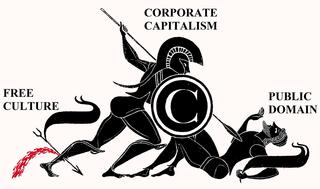A Concern Interview with Prof. Rajan Gurukkal: How does Capitalism influence education?
Published on

Concern interviewed Prof. Rajan Gurukkal, Sundararajan Visiting Professor at the Centre for Contemporary Studies, IISc about the effect of capitalism on the state of education and the framing of its policy. Prof. Gurukkal is a leading Indian social scientist, historian, professor and writer. He has written six books in Malayalam and five in English, on the topics of Socio-economic and cultural history of Kerala, structural anthropology, historical sociology, and human ecology of the Southern Western Ghats.
Can we aspire to have an ideal system of education? In your view, what should it look like?
Ideal education is the one that enables a critical understanding of the conditions in which the people exist. Great personages like Gandhi, Paulo Freire, Henry Giroux, Ira Shor, Cathleen Weiler, Peter McLaren, Stanley Aronowitz and others have formulated the ways, means and ends of such an education.
Ideal education facilitates deeper learning that has three phases:
The semantic or linguistic phase of learning: what it means. The techno phase of learning: how it works. The epistemic phase of learning: why it holds good.
Ideal higher education is a logical extension of it that provides deeper knowledge of subversive awareness and critical reasoning. It engenders political desire for emancipation, confidence in the social potential for emancipation, and a moral imperative to struggle for it.
What is your diagnosis of the current system of education in India?
The main problem of current education in India is its poor quality. All of us are obsessed with quality but rarely do we ask what quality means, as if its attributes are self-evident and universal. There is no universally accepted definition of quality education.
What is to be learnt or what competencies are to be acquired seem to have differed from period to period, for each socio-economic system would have its own needs. Who decides them? Who decides what ‘quality’ means? Who decides what needs to be done? It is the dominant economy that decides all of this.
What is the dominant economy right now? What is its influence?

The dominant economy is Capitalism and the current advanced phase of it is called Techno-capitalism, an economy that turns knowledge into multiple commodities. Techno-capitalism has opened up the site of knowledge as a new form of accumulation. By trading in the intangible assets of innovative knowledge and creativity, it generates 20% of the total global returns today.
Creativity being the most highly priced commodity, it is the intangible intellectual asset that constitutes both commodity and capital in the economy. Therefore, Intellectual property which has become extremely important for techno capitalism, is identified as one of the most effective ways of facilitating better accumulation of wealth. Innovation is going to take place in their huge experimentalist institutions, but as a joint enterprise or as a collective product where in the intellectual property rights or patents would go to the corporate house and not to the individuals.
Other than that, by being heavily dependent on technology, techno-capitalism also constrains science to be technology. Corporate houses that control experimentalist establishments are compelling scientists to transform their discoveries into inventions.
Examples abound in areas such as nanotech sensors and transmitters, biotechnology and its diverse fields, such as genomics, synthetic bioengineering, bioinformatics, bio-pharmacology etc. By forming into corporate houses, Techno-capitalism has evolved a new form of industrial organisation too.
On what plane are the differences with the current state of affairs? Lack of government-spending or the overall policy paradigm?
It is not the scarcity of revenue but the willingness of the government that matters. At least 6% of the GDP should be kept apart for spending on education.
In the name of development, a lot of revenue is expended for subsidising huge infrastructure of urban complexes, transport and communication etc. It is a myth that such enterprises represent real development. It destroys landscape ecosystems and deprives the poor of their livelihoods – injustice to both the environment as well as the society.
Bureaucrats fail to understand that education is a vital site of investment. They take it as a domain of expenditure and hence the hue and cry about revenue scarcity.
The economic reforms of 1991 gave an enormous boost to capitalism in the country. Have they affected the education policies?
The new economic policy and reforms of 1990s have seriously damaged the education sector in India by making equity irrelevant and disparity in access to education, ever mounting.
A major step in that direction is the General Agreement on Trade in Services (GATS) agreed between India and World Trade Organisation (WTO) in 2005. WTO wanted to capture the profitable domain of education with an estimated potential for profit of 3 Trillion dollars in the developing countries. So, India was assiduously persuaded to fall in line and agree summarily to the provisions stipulated by the GATS allowing education as an object of private interest. The state was given an option of being a leading player, but with the imposition of various other capitalist responsibilities such as requiring the allocation of revenue. The state had no other way and started speaking about its inability in supporting education. Even primary education, which the constitution stipulates as something mandatory for the state was not spared. It was stated in the document that the country would be able to make a profit through education, but this would come to be true only for the developed countries and not the developing countries.
This has been the major development after 1991 and it has been steadily going on in the same direction. Even then, some of the obligations as per the GATS agreement have (thankfully) not been met - one is total privatization of higher education sector. The state tried to initiate the same through a series of bills. However, excepting the private universities bill which got enacted, other proposals are still pending legislation due to widespread criticism. Even though this was not being materialized, private universities have already come up. Still, the UGC and other regulatory institutions were insisting certain quality-criteria. Because of that, the effort now is to overcome even that by scrapping UGC altogether and overcome the statutory limitations.
It is intended to be a sector of freewheeling privatization as far the state’s role is considered and this is the direction in which the reforms of 1991 are taking the country.
Whenever this has been contested, you find a rhetoric put up that it is to justify the public needs. The actual interest that is hidden behind the word ‘development’ is to privatize education as an international obligation ever since GATS - 2005.
What is the overall effect of Techno capitalism on education and thereby on the people?

The main consequence of the impact of techno-capitalism on higher education is commodification of science and technology. In the process, it is confiscating the creative abilities and innovativeness of the young scientists and technologists of the country and converting them into micro-specialists - like the parts of a giant mechanical system - incapable of a holistic perspective.
What it needs is a well-disciplined, workaholic and apolitical youth which is least perturbed by an otherwise disturbing social reality but one that is fully trained in advanced instrumentation and laboratory skills. Naturally science and technology education leads to the production of robotic youth.
Most of the middle class views education as a path to employment. Shouldn’t that be the primary aim of higher education?
Higher Education should make the youth employable is a point taken for granted. Nevertheless, it should also lead them to the accomplished status of an ethical, political citizenry of critical consciousness. We should not think that it can happen as a natural process, because education is one of the most powerful social institutions of the socio-economic system, which normally ensures conformity rather than critical thought, for reasons of political economy.
As a result, Science and Technology Universities are increasingly becoming sites of organised de-politicisation by precluding any possibility of critical thinking and its democratisation.
Broadly, what needs to be changed in the field of education? This is a question that has no readymade answer. There are many aspects that need a total change. It has to start at the individual level of consciousness with a strong realisation that the question is to question what needs to be questioned.
All that one can do is act as a critical insider by developing courses, curricula and so on in such a way that the students are rendered enough deeper knowledge in the subjects concerned, which is inherently subversive and critical. People will develop critical consciousness and they will be able to participate in debates on public policy issues and so on.
Many students from IISc graduate and take up jobs in industry as well as research in public and private sectors in India as well as abroad. What would you say to them?
It is the normal course of their careers. They gain good laboratory skills, theoretical knowledge and also good competency from this prestigious institution and then they are employed outside the country in highly paying private establishments. As individuals they certainly may benefit out of that but the nation suffers if they go in large numbers outside the country. Individually one can’t find fault with them but as a collective process it should be an important issue for the nation.
They should be made critically aware that although they would be paid well for the time being, by the time they retire, they would have been completely deprived of their creative contributions and alienated. If they become critically aware of this process of confiscation of their creativity under the techno-military setup, then they themselves would decide to serve their country and society by preferring national well-being to individual well being, and would choose to remain here.